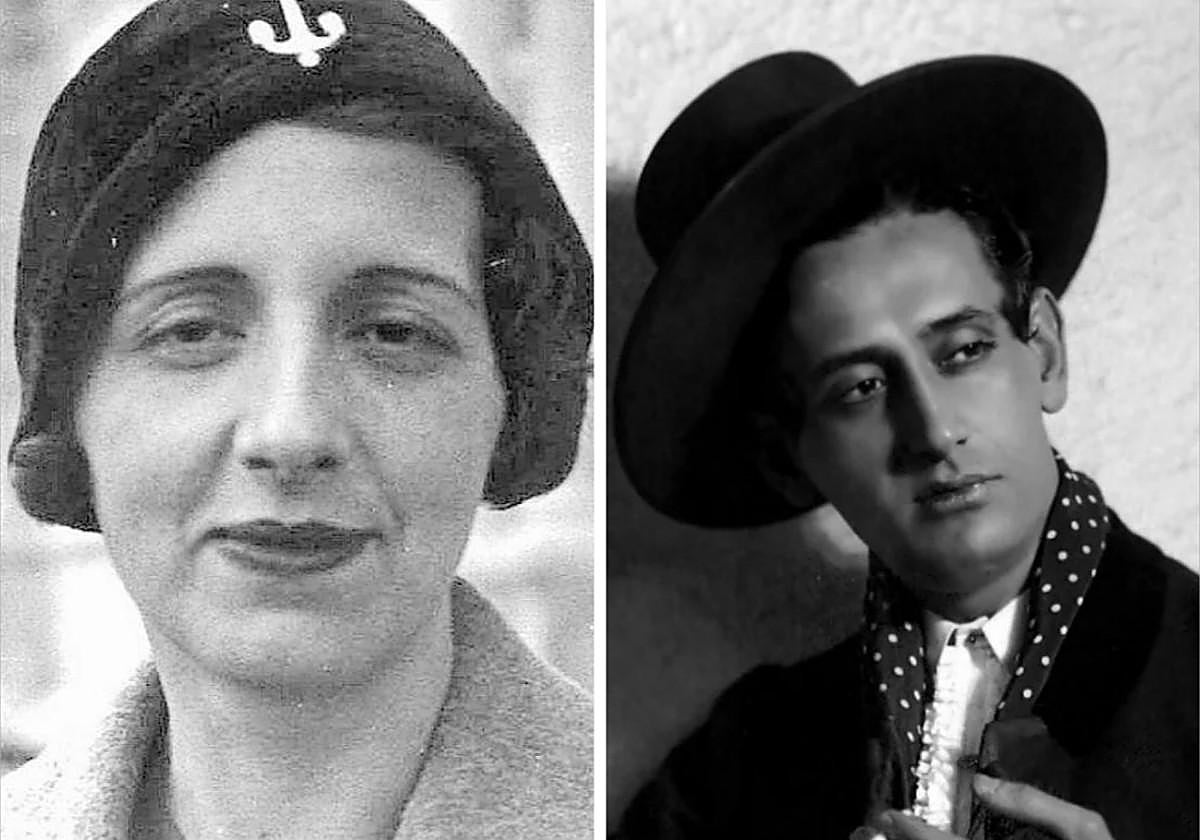Malaga-born figures from history honoured in Madrid as victims of the Franco era
The Spanish government recognised María Zambrano and Miguel de Molina and fellow Andalusians Blas Infante, Vicente Aleixandre, Joaquín Amigo, Carmen Hombre and Juan Máximo during an event in Spain's capital
Europa Press
Madrid
Wednesday, 11 December 2024, 20:57
The Malaga-born intellectual and philosopher María Zambrano and artist Miguel de Molina, were recognised on Tuesday 10 December, along with 19 other people, as victims of the Franco dictatorship, in a ceremony held in Madrid, during the commemoration of 'Día de Recuerdo y Homenaje a todas las víctimas del golpe militar, la Guerra y la Dictadura', (day of remembrance and tribute to all the victims of the military coup, the war and the dictatorship), presided over by prime minister Pedro Sánchez.
In addition to María Zambrano and Miguel de Molina, the government paid tribute to five other Andalusians: the writers Blas Infante and Vicente Aleixandre, the philosopher Joaquín Amigo, the trade unionist Carmen Hombre and the socialist politician Juan Máximo.
The poet Miguel Hernández, the minister and director of the newspaper El Socialista Julián Zugazagoitia, and the Supreme Court magistrate and deputy for Lugo in the elections to the Constituent Courts during the Second Republic, Francisco Javier Elola y Díaz Varela, were also honoured.
The honorees
María Zambrano was born in Vélez-Málaga, but after the war she went into exile in Paris, New York and Havana, before settling in Mexico, where she taught philosophy at the university. She returned to Spain in 1984 and was awarded the Prince of Asturias Prize in 1981 and the Miguel de Cervantes Prize for Literature in 1988.
Miguel de Molina was an artist, singer and dancer, who was born in Malaga. He was kidnapped from his dressing room and beaten during Franco's regime. He went into exile in Argentina in 1942 where he continued his career until his death in 1993 at the age of 84.
Sánchez also paid tribute to Blas Infante, from Casares, "father of the Andalusian homeland", notary and Andalusian politician, who was arrested by a group of Falangists, imprisoned in Seville, and shot in the early hours of 11 August at kilometre four of the road from Seville to Carmona.
Carmen Hombre Ponzoa, born in San Fernando (Cadiz), and Juan Máximo Salazar from Jerez, were imprisoned and repressed at the start of the dictatorship. Ponzoa was executed when she was eight months pregnant. Juan Máximo was tortured before being shot in Jerez.
After the war Máximo remained in Spain and helped the widow of Miguel Hernández financially. In 1949 he was appointed Académico de la Lengua and became a teacher and protector of young Spanish poets and in 1977 he was awarded the Nobel Prize for Literature.
Finally, the Granada-born Joaquín Amigo, writer, teacher and philosopher, friend and confidant of Federico García Lorca and disciple of Ortega y Gasset, who was murdered by Republican militia when he was thrown into the gorge in Ronda at the end of August 1936, just a few days after Lorca's death in Granada.
Hoy devolvemos la dignidad a quienes fueron privados de ella.
— Pedro Sánchez (@sanchezcastejon) December 10, 2024
Porque no hay mejor forma de proteger la libertad, que honrar a quienes lo dieron todo por ella. Incluso la propia vida.
Para que cuando falten los mayores, cuando ya nadie pueda contar aquella historia, no se pierda… pic.twitter.com/7wilIF6bcl
Events marking the 50th anniversary of the death of Franco
Sánchez announced that in 2025 a hundred events will be held under the slogan 'España en libertad' (Spain in freedom) to mark the 50th anniversary of the death of the dictator Francisco Franco. The prime minister said that a high commission and a scientific committee of experts will be created to organise these events and collaborate with all the administrations.
He explained that the aim of these activities is to highlight the great transformation that Spain has undergone in half a century of democracy and to pay tribute to all the people and "collectives" that made it possible. To this end, more than a hundred "cultural activities, events of various kinds, in schools, streets and museums" will be held from 8 January.
Furthermore, the prime minister highlighted the impact that the Ley de Memoria Democrática (law of democratic memory) has had since its approval two years ago, such as, for example, the fact that progress is being made in dissolving the Francisco Franco foundation. "Because obviously, in a democracy like ours, there is no tyrant whose work deserves to be extolled," Sánchez pointed out.
He went on to say that thanks to the law more than 5,600 bodies have been exhumed and 637 declarations of recognition and personal reparation have been processed. Fifteen places of memory "such as the Valley of Cuelgamuros" have also been given a new meaning.
He also stressed that thanks to this law, "more than 300,000 descendants of exiles" will be able to obtain Spanish nationality, "An act of justice for those who were deprived of the right to be Spanish because of political persecution," he added.
